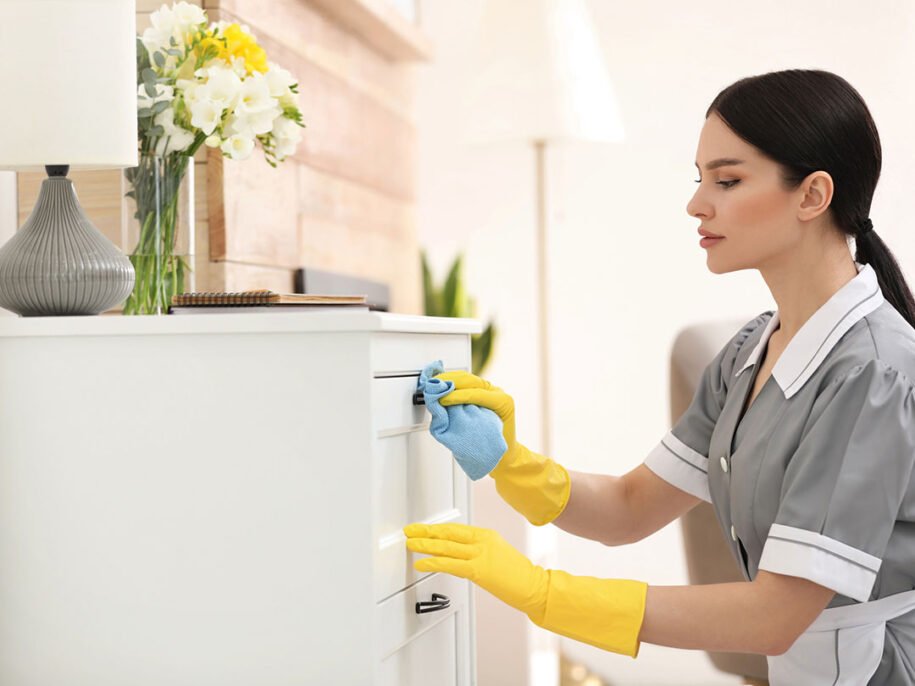A successful vacation rental experience relies on more than just stylish décor and prime location. For travelers booking short-term stays, the condition of the property—its cleanliness, functionality, and upkeep—can influence their entire trip. In the competitive vacation rental management market in Scottsdale, guests expect prompt attention to maintenance, flawless cleanliness, and minimal disruption. Achieving this level of consistency involves careful coordination behind the scenes.
This article explores how cleaning, maintenance, and repairs are typically managed in a professionally operated vacation rental and what makes the system efficient for both property owners and guests.
The Importance of Routine Cleaning in Guest Satisfaction
Cleanliness is usually the first and last impression guests receive. Professional property managers typically have the cleaning done immediately after checkout, so the next guest enters a clean space. This turnaround is possible with online booking software that provides the cleaner with real-time booking calendars.
Cleaning crews typically receive short-term rental protocol training, which is greater than customary residential housekeeping. Tasks may vary from restocking provisions and reporting harm, to photographing the cleanliness and following quality control standardized checklists. These procedures ensure that every guest arrives in a welcoming and uniform environment.
In some cases, properties may also undergo mid-stay cleanings for extended bookings or optional deep cleaning services between seasons. These additional processes maintain the highest standards and prolong the life of interior fittings and fixtures.
Handling Maintenance Proactively, Not Reactively
Maintenance in vacation rentals involves a balance of routine and responsive maintenance. Preventive maintenance is typically conducted on a monthly or quarterly basis and includes tasks such as HVAC filter replacements, appliance inspections, pest control treatments, and plumbing inspections. Regular inspections are conducted to identify and address issues before they impact the guest’s stay.
Responsive maintenance, on the other hand, addresses issues that guests complain about while they are present. A professional management company typically has a 24/7 emergency phone number and has established relationships with local vendors to ensure a quick response. Work orders are usually submitted electronically, monitored in real-time, and followed up on to ensure completion within a specified timeframe.
With smart home technology on their properties, remote diagnostics can even detect issues such as HVAC malfunctions or security system notifications, facilitating quicker resolution and minimizing guest inconvenience.
Coordinating Repairs: Balancing Speed and Quality
Repairs, whether minor or substantial, are handled with a transparent chain of communication between guests, the property manager, and a vetted repair team. For non-urgent items discovered during turnovers or inspections, property managers typically schedule work during periods when the property is vacant to minimize the impact on guests. In contrast, time-sensitive repairs—such as leaks, power outages, or appliance failures—require swift action and on-call technicians.
Effective repair coordination involves using trusted local contractors who are familiar with the property and available on short notice. Management companies often negotiate service-level agreements (SLAs) with these providers to guarantee timely responses and favorable pricing. Transparency is also essential. Guests are typically informed about ongoing repairs, expected timelines, and alternative accommodations if necessary.
Technology also plays a role. Many property management systems enable owners to approve or reject repair quotes in real-time, giving them control without slowing down the process.
Streamlining Communication and Accountability
Coordination is central to successfully managing these operational areas. The most effective property managers have systems centrally located that include cleaning routines, maintenance requests, repair work orders, guest communication, and owner approval. This avoids the risk of missing the details and ensures everyone is on the same page.
Accountability also comes into play. These cleaners and contractors typically take before-and-after shots or full-service reports, which the management team reviews. Not only is this useful for quality control, but it also serves as a record for claims for damages or insurance, should they ever need to be made.
Why Professional Oversight Makes a Difference
In the highly competitive vacation rental management market in Scottsdale, the quality of behind-the-scenes operations can significantly impact a property’s success. Professional oversight ensures that cleanings happen on schedule, maintenance issues are addressed proactively, and repairs are coordinated efficiently. Property owners benefit from preserved asset value and satisfied guests, while travelers enjoy a smooth, enjoyable stay.
To learn how these services are managed with precision and care, visit Rank One Stays, where professional vacation rental management in Scottsdale is handled with expert attention to detail.
Picture Credit: Depositphotos

